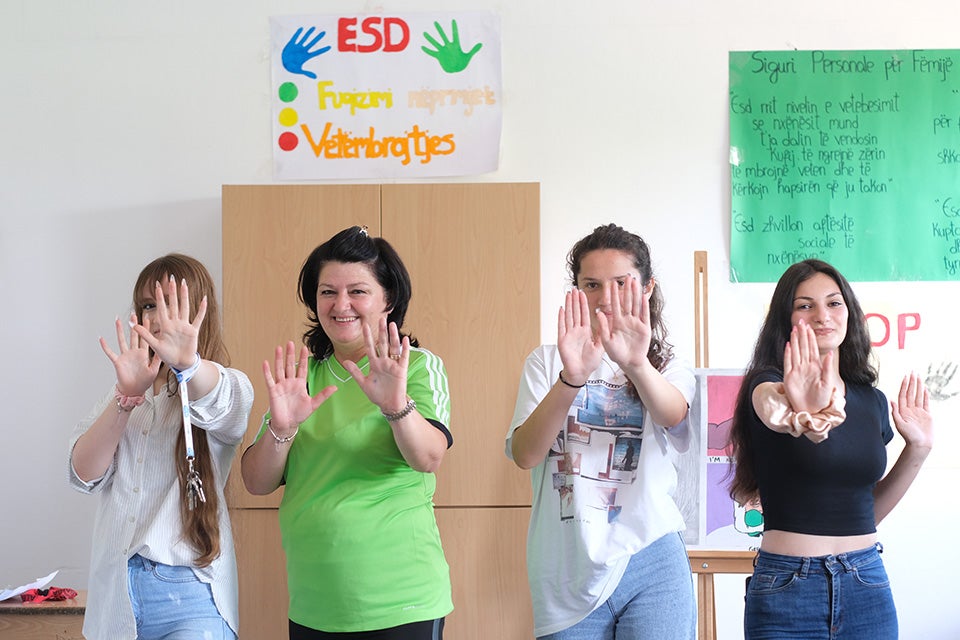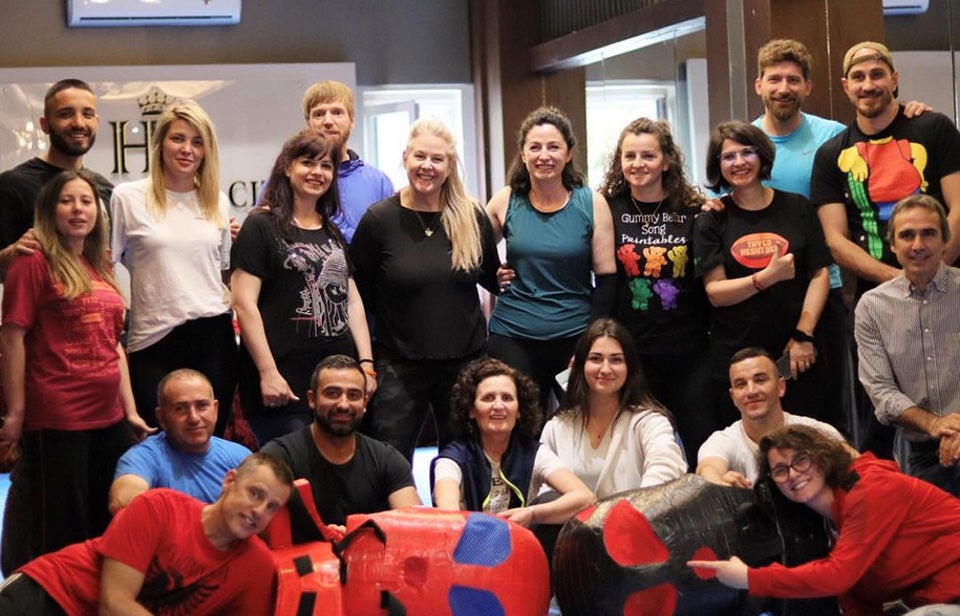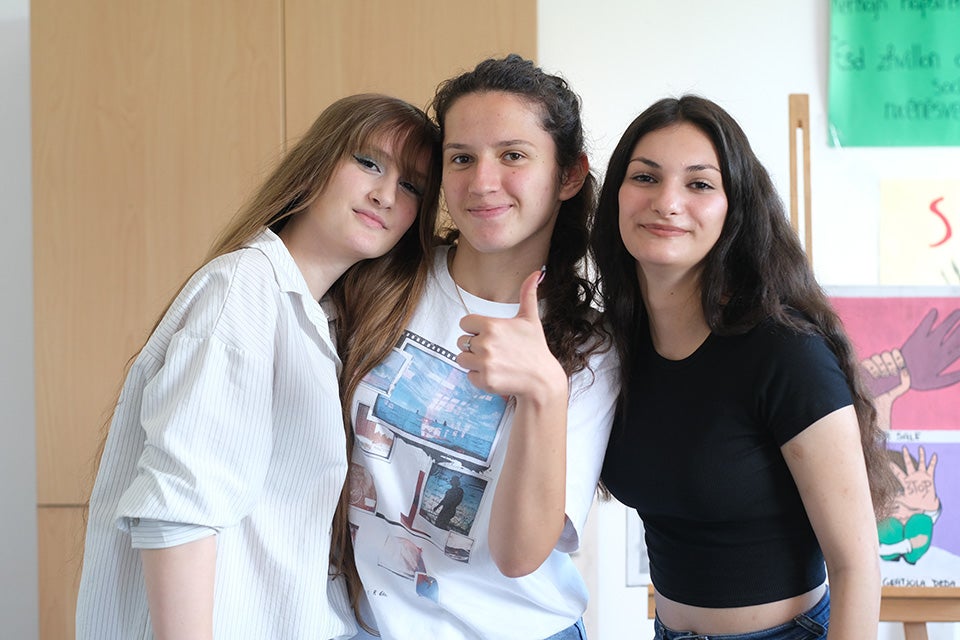Empowerment through self-defense: not only life-changing, but life-saving
Do you recall your teenage years? Insecurities, low self-esteem, anger, and loneliness? Now, imagine adding bullying, peer pressure, and the impact of social media that today's young people face — a daunting and unending rollercoaster. However, Albanian teenagers now have a chance to overcome these struggles and find their voice through Empowerment Self-Defense (ESD) classes. This innovative methodology, introduced by ESD Albania with the support of UN Women through funding by the Swedish Government, aims to prevent violence and reduce bullying. In partnership with the Ministry for Youth and Children and the Ministry of Education and Sports, the methodology was integrated into extra-curricular school programs in 2022. So far, it has reached 56 schools across the country, transforming the lives of hundreds of students and their peers.
Date:

Leze Frroku is the teacher we all wish we had during our adolescent years. She listens to insecurities, cares for feelings, nurtures self-esteem, and soothes anger. With 38 years of experience as a physical education teacher, she has always supported her students. Now, after completing four self-defense training sessions with ESD Albania through UN Women projects funded by the Government of Sweden, she feels more empowered than ever.
Two years ago, she began teaching ESD classes as an extracurricular activity at “Karl Gega” High School in Balldren village, just a few kilometers from the town of Lezhë, in northwest Albania. The ESD Club at her school is now attended by 40 enthusiastic students, both girls and boys. “The interest of and impact on students have been immense. They attend four classes per week and are eager to participate. They changed within a month of attending these classes; you can imagine their transformation after a year,” Frroku explains. She has observed that these students have become more assertive, they stand up for themselves, and instances of bullying have significantly decreased. “They take good care of their peers and the number of incidents at school has decreased,” Frroku recalls, mentioning an instance where a child's life was saved thanks to her and her students' prompt intervention.
So far, 56 ESD clubs have been established across Albania, involving 1,068 students, with more than half being girls. Leze Frroku believes that ESD classes should be made compulsory at least once a week in every Albanian school.
Mirela Gjoni, ESD Project Coordinator, emphasizes that this methodology is a life-changing instrument, impacting children and youth in three critical dimensions. “At the psychological level, they get to know themselves and strive for self-improvement and self-confidence; emotionally, they learn to identify and manage their feelings. Physically, they learn to set healthy boundaries and avoid physical conflicts by developing self-defense strategies.”

Around 23% of ESD teachers now engage parents and other community members in informative and awareness-raising sessions. Parents acknowledge the positive influence of ESD and consistently praise the teachers involved.
Among the students Leze Frroku singles out are Klara Ndreca, Angjelina Moli, and Paola Frroku. Klara, only 15 years of age, now feels more mature and capable of handling difficult situations. “I no longer cringe and cry, nor do I feel guilty. We live in a very small town where girls are expected to keep their heads down and are often bullied for not reacting. But now, boys don't talk to us like they used to,” she says.
Klara's message to her peers is clear: talk to parents or friends about problems and threats, because there are people who can help. "You are not alone," she emphasizes.
This initiative is not just about teaching self-defense; it is about empowering Albanian young girls and boys to navigate life’s challenges with confidence and resilience.

Angjelina Moli, 16, shares her transformation: “I was very shy from 6th to 8th grade, hardly speaking at all. Now I feel confident and liberated.”
Paola Frroku adds, “I have been learning empowerment through self-defense for a year, and it has helped me in many cases of harassment or bullying. Previously, I would fear walking on the street by myself, while now I feel secure because I know how to respond to harassment and how not to let it affect me. Every girl should learn this.”
Even Leze Frroku, their teacher, did not always use to be so vocal. She proudly shares that ESD has transformed her personal life, making her feel more confident and empowered. After attending ESD training, she feels more assured in every aspect of her life—at school, at home, and within her community. She jokingly mentions how her newfound assertiveness has come as a surprise to her husband, but also that her daughters have noted the positive impact her transformation has had on them as well.